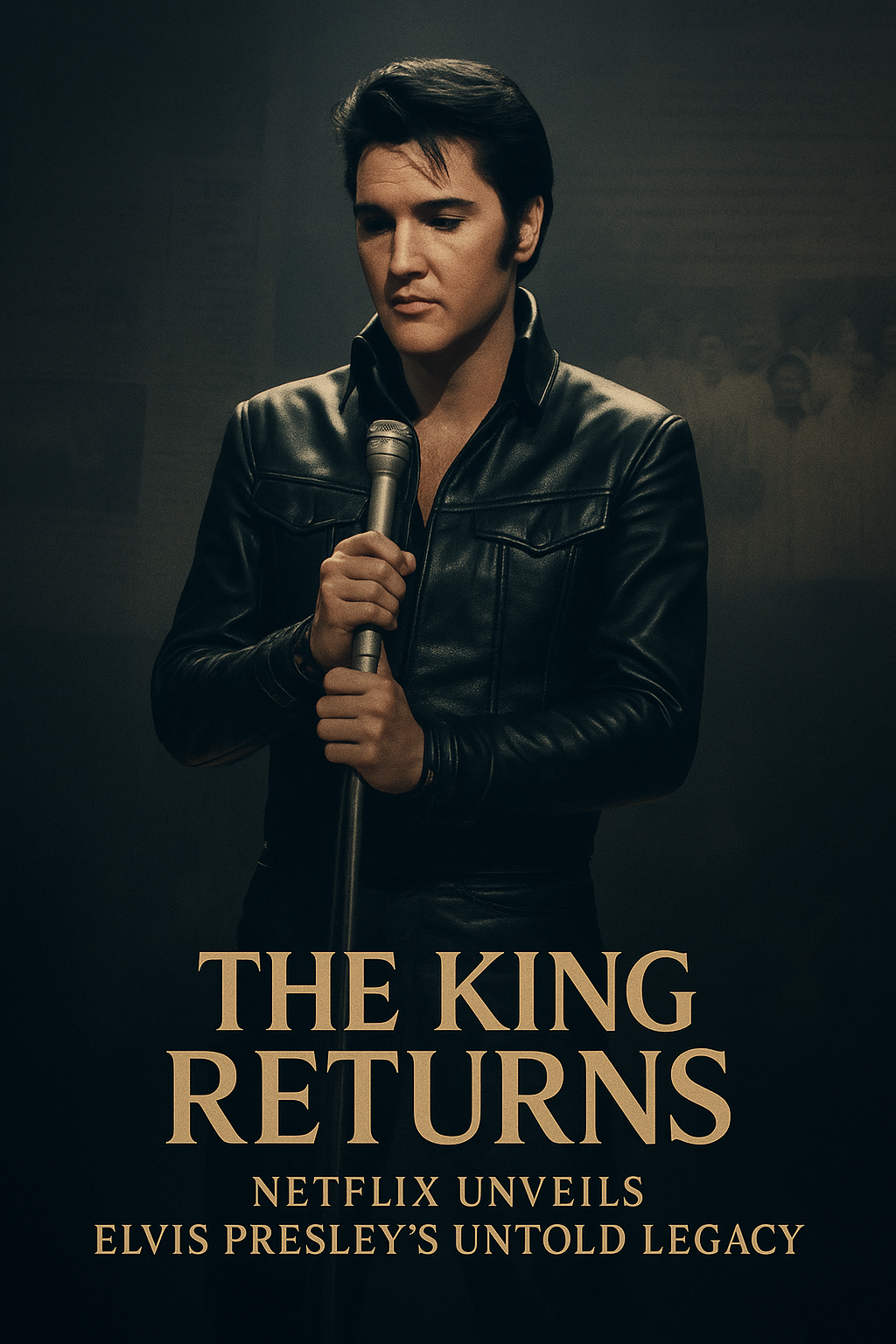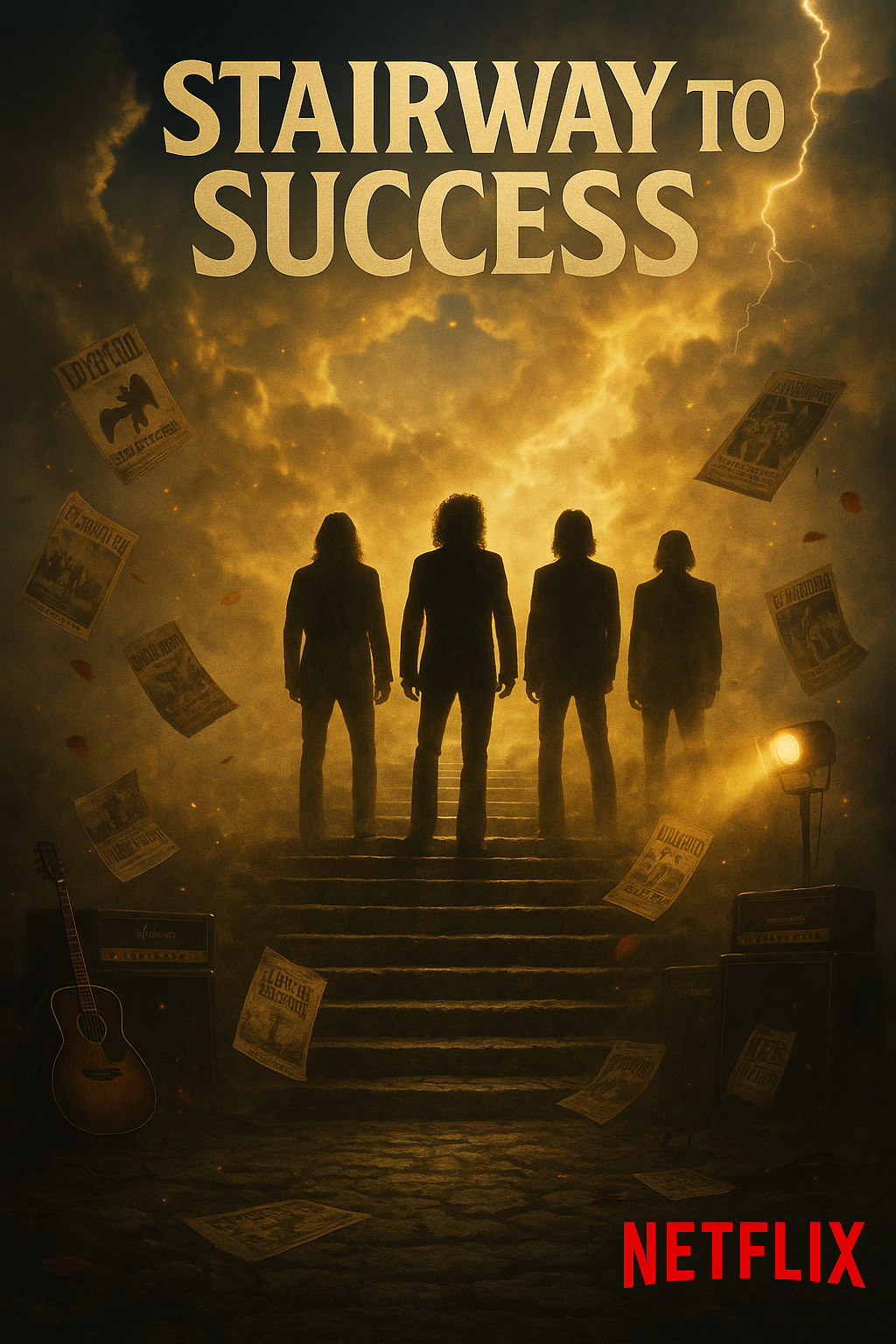Elvis Presley, the undisputed King of Rock and Roll, left behind more than just music; he created a movement that shaped pop culture for generations. Netflix’s new documentary, The King Returns: Elvis Presley’s Untold Legacy, offers a fresh, unfiltered look into the man behind the myth. This isn’t just a nostalgia trip—it’s a revelation, peeling back decades of carefully curated image to expose the raw, conflicted, and deeply human Elvis.
The film opens with rare footage of Elvis backstage before one of his final performances, a striking contrast to the glitz and glamor often associated with him. It sets the tone for what becomes a haunting yet heartfelt narrative of fame, pressure, and identity. His story is told not just through performances and interviews, but through handwritten notes, private recordings, and conversations with those who knew him best.
Unlike previous retrospectives, this documentary doesn’t shy away from the darker corners of his career. It tackles the toll that superstardom took on his mental health, his reliance on prescription drugs, and the manipulation he endured from the very industry he helped transform. The film frames these struggles not to diminish his legend, but to honor the depth of his experience.
Among the most moving moments is a segment focusing on his comeback special in 1968. Viewers see a man rediscovering his purpose, shedding the movie-star image to reclaim his musical roots. The emotional weight of those performances—clad in black leather, stripped of spectacle—becomes a metaphor for the documentary itself: raw, powerful, and sincere.
Netflix’s production team does a masterful job of blending archival material with modern interviews. From Priscilla Presley to young artists inspired by his sound, a wide range of voices chime in, painting a portrait that’s both reverent and realistic. These personal accounts, layered with commentary from historians and critics, give a 360-degree view of his legacy.
A notable thread throughout the film is Elvis’s constant struggle to balance his Southern upbringing with the rapid changes in American culture. As civil rights movements surged and youth rebellion gained momentum, Elvis found himself both a symbol of rebellion and a man burdened by traditional values. The documentary gives space to these contradictions, highlighting the tension between his upbringing and the evolving world around him.
One of the most compelling chapters dives into his relationship with gospel music. For Elvis, gospel wasn’t just a genre—it was spiritual nourishment. The film showcases intimate recordings and church performances that reveal a softer, more introspective side of the star that often got overshadowed by his rock persona.
The King Returns also delves into Elvis’s complicated relationship with his manager, Colonel Tom Parker. Through newly uncovered documents and testimony, the documentary examines the control Parker exerted and the long-term effects it had on Elvis’s personal and professional life. It’s an eye-opening look at how exploitation can be disguised as loyalty.
Visually, the documentary is stunning. With carefully restored concert footage and immersive sound design, viewers are transported back in time. The film doesn’t rely on flashy editing or gimmicks—it lets the material speak for itself. The reverence is palpable, but it never veers into blind adoration.
Perhaps the most poignant takeaway is how deeply Elvis longed for authenticity. Despite the fame, the fortune, and the frenzy, he craved normalcy, connection, and meaning. The documentary captures that yearning in a way no previous film has, making it more than just a biography—it becomes a meditation on the cost of cultural immortality.
For longtime fans, The King Returns is a reminder of why they fell in love with Elvis in the first place. For younger viewers, it’s an education in how one man reshaped music, fashion, and fame itself. Either way, the film succeeds in bringing Elvis back to life—not just as a legend, but as a man.
In the end, the documentary doesn’t answer every question or solve every mystery. Instead, it leaves viewers with a deeper understanding of Elvis Presley’s untold legacy—complex, haunting, and enduring. Just like the man himself, it stays with you long after the final credits roll.



